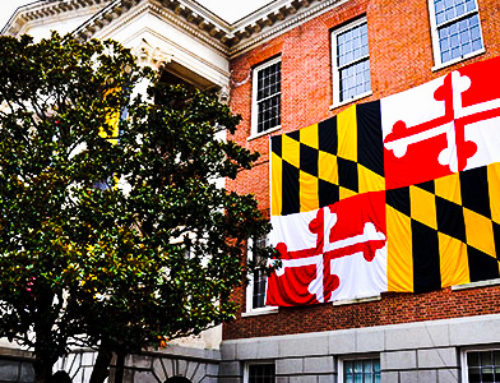View by Topic
Recent Articles
-
Congress Blocks California’s Gasoline Car BanSaturday, May 31st, 2025
-
EPA Will Keep Current Limits for “Forever Chemicals” in Drinking WaterSaturday, May 24th, 2025
-
Court Indefinitely Pauses SEC Climate Rule LitigationSaturday, May 17th, 2025
-
Maryland is About to Regulate Mold But is the Cart Before the HorseSaturday, May 10th, 2025
View by Month/Year
“Green Building Law Update” Headlines
Recent Articles & News from
Stuart Kaplow’s blog
at GreenBuildingLawUpdate.com
- EPA Will Keep Current Limits for “Forever Chemicals” in Drinking Water May 25, 2025
- Court Indefinitely Pauses SEC Climate Rule Litigation May 18, 2025
- Maryland is About to Regulate Mold: But is the Cart Before the Horse? May 11, 2025
- BEPS Redux: The Most Far Reaching Environmental Legislation of the 2025 Maryland General Assembly May 4, 2025
Subscribe to the Green Building Law Update!
Stuart Kaplow brings his expertise and extensive experience to the table with his unique digital publication, "Green Building Law Update". Subscribers receive regular updates to keep them informed about important issues surrounding Environmental Law, Green Building & Real Estate Law, as well as the emerging demand for Environmental Social Governance (ESG).
Get fresh content through the lense of Stuart Kaplow's cutting-edge expertise, innovative commentary and insider perspective. Don't miss another issue! Subscribe below.

Blockchain has come to Real Estate
Earlier this fall an apartment in Kiev became the first real estate purchased using blockchain, portending a new era in the sale of land and improvements.
It is suggested blockchain may do for the $217 trillion real estate market what the Internet did for communication. Blockchain will address high transaction costs, long time delays, and heterogeneity, accelerating both the investment good and the consumption good of real estate across sectors and the globe.
Blockchain, a digitized, distributed ledger that records and shares information, could enable the real estate industry to address its inefficiencies. Many think of blockchain as the technology, or better yet the operating system, that supports Bitcoin, the digital currency launched in 2009 that has been very much in the media in recent days as prices have run up.
There is no requirement for a cryptocurremncy exchange in a business transaction undertaken with a smart contract stored over the peer to peer network that is blockchain.
Real estate is a highly regulated industry and real estate transactions must be recorded in a government ledger to be recognized and enforceable by all. There are more than 3,600 government in the United States alone where real estate deeds are filed and the vast majority are paper instruments filed with a court clerk and not easily accessible.
A California based private company, Propy, contracted with Ukraine’s e-government agency to serve as a duplicate official ledger facilitating the $60,000 Kiev apartment sale in September.
Laws will need to be changed across the U.S. and the globe to allow more than the old fashioned register of deeds because today in most of the thousands of local jurisdictions in the U.S. the transfer of ownership of real estate is effective when the deed in presented for recording among the land records.
States are making the necessary changes in law.
In 2016, Vermont enacted House Bill 868 that provides for the enforcement of transactions using “blockchain technology” by providing a presumption of admissibility in a judicial challenge,
A digital record electronically registered in a blockchain, if accompanied by a declaration that meets the requirements of subdivision (1) of this subsection [.. notarized], shall be considered a record of regularly conducted business activity pursuant to Vermont Rule of Evidence 803(6) ..
And earlier this year, Arizona went even further enacted House Bill 2417 recognizing blockchain signatures and smart contracts as an electronic record and Senate Bill 1084 requiring governmental agencies to allow the use of electronic records or electronic signatures, including for the transfer of real estate.
Delaware, Nevada and Illinois also have blockchain authorizing laws; as do Dubai and Israel.
It may well be commercial leasing will elevate blockchain in the marketplace ahead of deeds because leasing transactions do not require involvement of a government registrar.
And progressive owners of green buildings and the like will all but certainly be at the forefront of this technological revolution. But all owners of commercial real estate, whether or not their aim is improve profitability, risk becoming as outmoded as the buggy whip industry, if they do not ponder and consider adopting blockchain technology.









